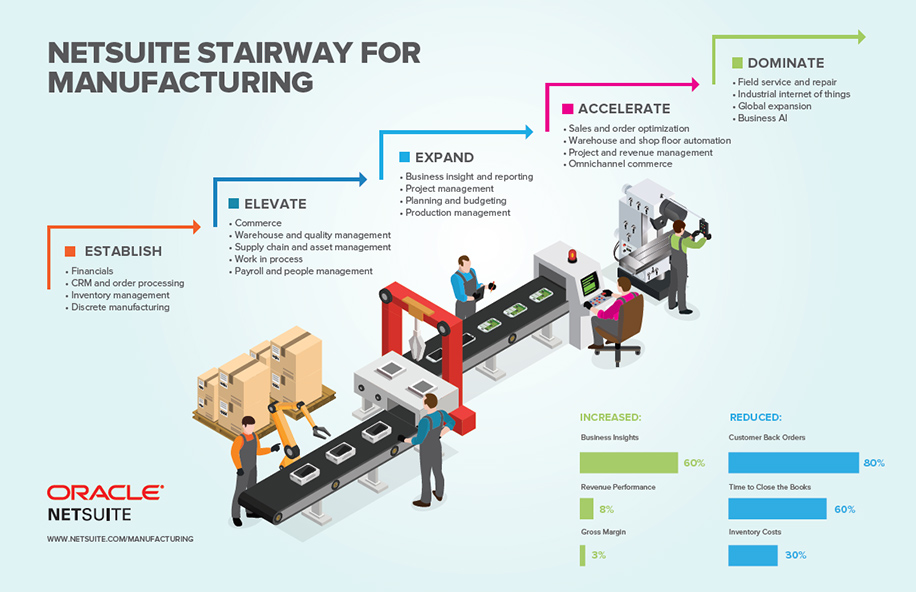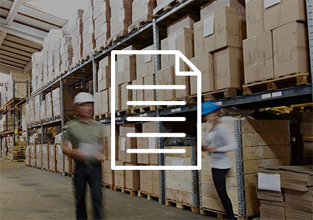Fast Growing Manufacturers
Business management software for the future of manufacturing
Unlock your manufacturing company’s growth potential
As a fast-growing manufacturing business, you need a modern, agile ERP that is cost-effective, scales rapidly and future-proofs your growing business for long term innovation and growth. All too often, fast growing companies are held back by entry-level software systems that stifle growth and unreliable manual processes that cut into performance and profitability.
A modern, cloud-based solution that grows with you, every step of the way
ERP/Accounting Ι CRM Ι OrderManagement Ι Production Ι Supply Chain Ι Management Ι Warehouse & Fulfillment Ι Ecommerce
NetSuite meets the evolving business requirements of the fastest growing companies in the manufacturing sector at every stage of their growth. It is the #1 choice for manufacturers to run financials/ERP, CRM and ecommerce applications in the cloud.
From new companies and up-and-coming companies, to established businesses, NetSuite empowers modern, fast-growing manufacturers, both private and public, to unlock their growth potential. Our cloud-based solutions streamline mission critical business processes and reduce IT costs, allowing your growth company to easily scale and future-proof your business with an agile business platform that evolves as your needs change.

system and Fishbowl as an “add-on” inventory management system. However, both systems have their
limitations, which ultimately impact manufacturers’ ability to innovate, scale and grow.
put our resources on selling the product, and not a lot into the back
end.”
everyone is going to NetSuite first, and because everyone has access
to anything that inventory touches—sales, return, shipment, refund
—they understand a bigger picture than their department.”
Discover NetSuite for Emerging Manufacturers
We enable emerging manufacturers to solve their biggest challenges
BUSINESS FINANCE MADE EASY
Automate mission critical tasks and go faster.
UNIFIED BUSINESS INSIGHTS
Break down silos and gain a more complete picture of your business.
GROW NEW PRODUCTS, MARKETS, CHANNELS
The sky is the limit—evolve, keep pace and grow.
FUTURE READY YOUR ORGANIZATION
Bid farewell to version lock and say hello to software that is always current.




































